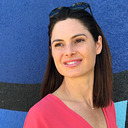I profoundly disagree with you on several fronts:
- Glyphosate is not the culprit for all our health woes. In fact, there is zero STRONG scientific evidence that it’s harmful in the doses we consume.
Yes, it can be harmful in large doses. Same goes for Tylenol, alcohol, vitamin D, and even essential oils. Fortunately, our regulators invest greatly in understanding the safe doses and regulate our crops such that we would need to consume impossibly large amounts of food to get into trouble.
For example, the cereals that prompted EWG headlines of “breakfast with a dose of roundup” would required several hundred servings per day to reach the (conservative) safe daily limits for glyphosate. Organizations like EWG mislead consumers with their fearmongering. Instead of referencing the safe limits established by national and international groups of scientists, they pull up their own safe limit, seemingly out of a hat.
2. Glyphosate bans are scientifically irrelevant as they reflect politicians pandering to consumer fears and demands. The same goes for bans on GMO crops.
I was indeed shocked to see the list of countries with glyphosate limitations (long but hardly universal), but it didn’t change my scientific assessment of the appropriateness of current glyphosate regulations. I think the same can be said about lawsuits against glyphosate — they reflect the opinion of juries, not scientists.
3. Nobody wants you to be sick. However, living well requires dramatic changes, more than just choosing organic, non-GMO crackers. There are no quick fixes, only major overhauls.
We are sick for many reasons. Our society that is constantly stressed, constantly eating, and rarely active. We are both undernourished and overnourished. We eat convenience foods rather than whole foods, and fall short on one of the most important nutrients of all: fiber (hello, fruits and veggies!).
I’m a scientific researcher (a decade in the trenches of cancer research) and I can tell you first hand that curing diseases is hard. Period. This is why gains have been so slow on war on cancer. Nobody would ignore or hide a potential drugs that cures cancer or any other disease.
We do, however underinvest in prevention and early detection because of the economics. I think this needs to be a much higher priority.
Regards,
Chana Davis, PhD
Founder, Fueled by Science
PS I have no financial conflicts to disclose. I work for myself with no sponsors. I am just sick of the fearmongering and truly want to help people make evidence-based food choices!
